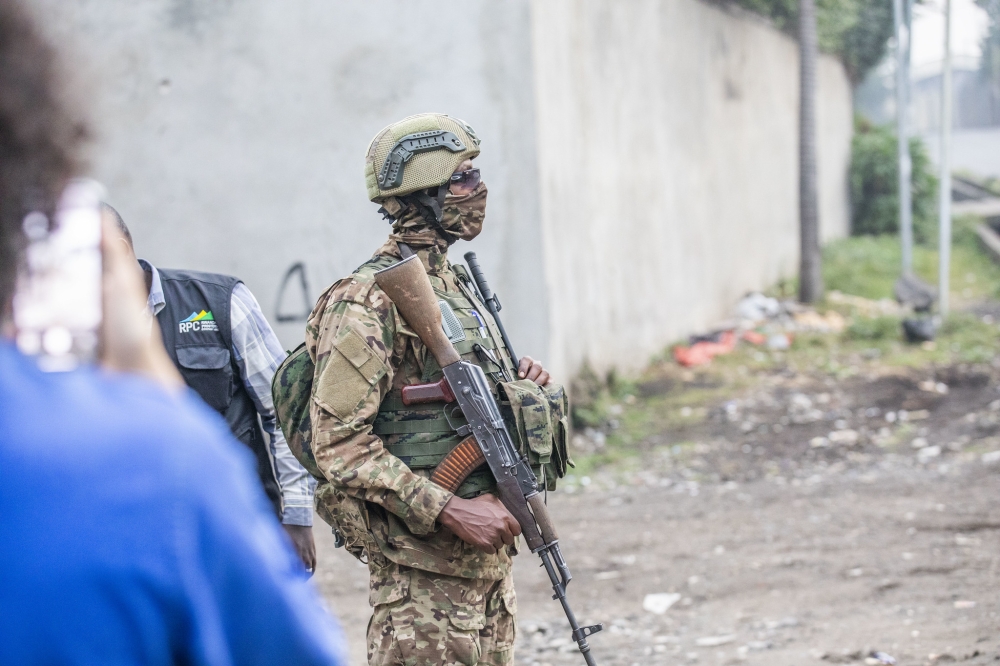
The Democratic Republic of Congo (DRC) formerly Zaire, has in recent history been portrayed as a nation whose riches have been a curse rather than a blessing. It is indeed a country caught in unending cycles of violence wrongly attributed to its mineral wealth. Allegedly these minerals are mined by their neighbouring countries, none of which has a commodities exchange or a market for highly priced minerals.
Notwithstanding, parts of these countries share geological characteristics with the eastern part of the DR Congo and may themselves possess these same minerals. This narrative, frequently spinned by the western media and western policy circles, frames the conflict in simplistic terms, reducing it to a tale of resource greed and external interference. Yet this perspective fails to address the true causes of the crisis and only deepens divisions among the “Congolese people.

” Blaming neighboring countries for the conflict has proven to be an ineffective and damaging approach. Nations such as Rwanda, and Uganda have often been cited as destabilising actors, and Burundi playing DR Congo saviour lately. This characterisation ignores the complex realities they face as a result of the instability in the DR Congo.
The chaos in Congo’s eastern regions has created a regional security crisis, forcing these countries into defensive and sometimes offensive positions. Refugee flows, cross-border attacks by armed groups, and the spread of instability have necessitated actions to protect their borders and populations. Painting these measures as interference not only oversimplifies their intent but also fails to resolve the core issues that have made the DR Congo a breeding ground for violence.
This external blame game has diverted attention from the internal governance failures at the heart of the conflict. For more than half a century, the DR Congo has been crippled by a lack of functioning state institutions, rampant corruption, and an inability to maintain order or provide basic services. The absence of effective governance has allowed armed groups to flourish, exploiting local grievances and capitalising on the state’s inability to assert control.
Pointing fingers at neighboring countries as the source of Congo’s troubles has done little to address these fundamental issues. Instead, it has fragmented the Congolese people, creating a narrative of external enemies that obscures the need for unity and reform within the country. This divisive rhetoric is particularly harmful in a region where national borders are a colonial construct.
The present-day boundaries of African nation-states, including the DR Congo, were drawn arbitrarily by colonial powers with little regard for the ethnic, cultural, or historical ties that bind communities. In the case of the DR Congo, these borders have divided people who share common languages, traditions, and governance systems. Instead of fostering cooperation, the imposition of these borders has created artificial distinctions that fuel conflict.
When accusations of foreign interference are leveled at neighboring states, they risk reinforcing these divisions, turning historical allies into adversaries and further destabilising the region. The reliance on external blame also obscures the deeper structural inequalities and historical injustices that have contributed to Congo’s instability. The DR Congo’s mineral wealth, often touted as a curse, has been exploited not by neighboring states but by a global system that prioritizes profit over people.
Western corporations dominate the extraction and trade of resources like coltan and cobalt, while Congolese communities see little benefit. Meanwhile, international arms flows have fueled the violence, often with tacit support or indifference from the same powers that decry the conflict. By focusing on alleged foreign interference, the international community avoids reckoning with its own role in perpetuating the crisis.
To resolve the conflict in the DR Congo, the focus must shift inward. Strengthening governance, rebuilding state institutions, and fostering national unity are critical steps toward lasting peace. Blaming neighbouring countries has only deepened divisions among the Congolese people, creating a false sense of external threat while ignoring the internal challenges that must be addressed.
True progress will require acknowledging the arbitrary nature of colonial borders and finding ways to foster cooperation rather than conflict in the region. This means reimagining African nation-states not as isolated entities but as interconnected communities with shared histories and common goals. The idea of returning to pre-colonial borders may seem radical, but it is worth considering in a broader discussion about African sovereignty and self-determination.
While dismantling colonial borders entirely is unlikely, rethinking the ways in which these borders shape national identity and regional relations is essential. The DR Congo’s conflict is a stark reminder of the limitations of the current nation-state system, particularly in a context where borders divide rather than unite. In the end, the question is not who is to blame for the war in the DR Congo, but who benefits from its continuation.
The answer lies with those who take what they need, profit from instability, and use it to their advantage. Western corporations extracting minerals, arms manufacturers supplying weapons, and global powers that support a weak Congolese state all bear responsibility for perpetuating the cycle of violence. Shifting the focus away from alleged foreign interference and toward these deeper issues is the only way to achieve meaningful change.
The war in the DR Congo cannot be solved by blaming neighbours or perpetuating narratives of external threats. It requires a reexamination of Congo’s internal challenges, a rejection of colonial legacies that divide its people, and a commitment to building a more just and equitable system. Only then can the Congolese people reclaim their sovereignty, heal their divisions, and create a future defined not by conflict but by collaboration and peace.
The writer is an African scholar and seasoned commentator on economic and political affairs.















